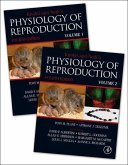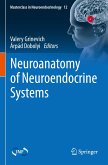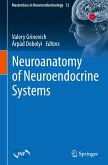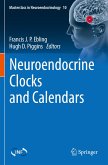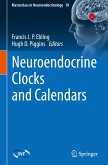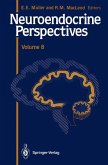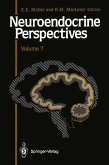Adaptations to maternal physiology are required for a successful pregnancy outcome. These changes are primarily orchestrated by the mother's brain and involve multiple neuroendocrine systems. For this book, the editors have gathered internationally recognized experts who have contributed to the major advances in our understanding of different aspects of the neuroendocrine regulation of mammalian pregnancy and lactation.
The book begins with a discussion of how pregnancy is recognized and maintained and the role of the placental hormones in supporting key adaptations required for a successful pregnancy. The next few chapters focus on the neuroendocrine adaptations that occur during pregnancy in some key regulatory processes to ensure a sufficient supply of energy and nutrients, protect the fetus from potentially harmful maternal stress hormones, and prepare mammals for birth, milk production, lactation and motherhood. Finally, our current understanding of how the significant peripartum hormonal changes contribute to the mother's cognitive function and mood is examined.
This book provides a broad overview of the finely orchestrated neuroendocrine adaptations that occur in pregnancy and lactation and discusses how such changes contribute to maximizing the likelihood of a positive outcome for mother and infant. Importantly the evidence for involvement of neuroendocrine dysregulation in some pregnancy-related complications, such as preterm birth and perinatal mood disorders is also highlighted. In addition to addressing fundamental mechanisms in the regulation of mammalian pregnancy and lactation, the book includes the most recent advances in the field made possible by utilizing the latest innovative research technologies. Moreover, it provides opinions on optimal experimental approaches, relates findings from experimental animal models with those from humans, and outlines the direction and opportunities for future research in this arena. Itis an essential resource for undergraduate students, postgraduate students, and early career researchers embarking upon their journey in the fields of neuroendocrinology, endocrinology, reproductive biology or behavioural neuroscience. It also provides a valuable synopsis for established neuroendocrine researchers and educators, especially those whose interest transcends the nexus between neuroendocrinology and reproductive biology.
This is the 15th volume in the International Neuroendocrine Federation (INF) "Masterclass in Neuroendocrinology" series, which aims to illustrate the highest standards and to encourage the use of the latest technologies in basic research and hopes to provide inspiration for further exploration into the exciting field of neuroendocrinology.
Hinweis: Dieser Artikel kann nur an eine deutsche Lieferadresse ausgeliefert werden.
The book begins with a discussion of how pregnancy is recognized and maintained and the role of the placental hormones in supporting key adaptations required for a successful pregnancy. The next few chapters focus on the neuroendocrine adaptations that occur during pregnancy in some key regulatory processes to ensure a sufficient supply of energy and nutrients, protect the fetus from potentially harmful maternal stress hormones, and prepare mammals for birth, milk production, lactation and motherhood. Finally, our current understanding of how the significant peripartum hormonal changes contribute to the mother's cognitive function and mood is examined.
This book provides a broad overview of the finely orchestrated neuroendocrine adaptations that occur in pregnancy and lactation and discusses how such changes contribute to maximizing the likelihood of a positive outcome for mother and infant. Importantly the evidence for involvement of neuroendocrine dysregulation in some pregnancy-related complications, such as preterm birth and perinatal mood disorders is also highlighted. In addition to addressing fundamental mechanisms in the regulation of mammalian pregnancy and lactation, the book includes the most recent advances in the field made possible by utilizing the latest innovative research technologies. Moreover, it provides opinions on optimal experimental approaches, relates findings from experimental animal models with those from humans, and outlines the direction and opportunities for future research in this arena. Itis an essential resource for undergraduate students, postgraduate students, and early career researchers embarking upon their journey in the fields of neuroendocrinology, endocrinology, reproductive biology or behavioural neuroscience. It also provides a valuable synopsis for established neuroendocrine researchers and educators, especially those whose interest transcends the nexus between neuroendocrinology and reproductive biology.
This is the 15th volume in the International Neuroendocrine Federation (INF) "Masterclass in Neuroendocrinology" series, which aims to illustrate the highest standards and to encourage the use of the latest technologies in basic research and hopes to provide inspiration for further exploration into the exciting field of neuroendocrinology.
Hinweis: Dieser Artikel kann nur an eine deutsche Lieferadresse ausgeliefert werden.


